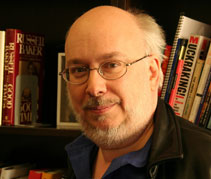Denise Mann
Professor, Cinema and Media Studies, UCLA School of Theater, Film and Television

Denise Mann teaches graduate and undergraduate courses on contemporary entertainment industry practices as well as critical studies seminars on film and television history and theory.
Mann also serves as the principal investigator of the UCLA TFT Digital Incubator and Think Tank (DIT) funded by the Paris-based global media company Havas Media Group (2014–present).
Mann is the editor of Wired TV: Laboring Over an Interactive Future (2014); the author of Hollywood Independents — The Postwar Talent Takeover (2008); and co-editor of Private Screenings: Television and the Female Consumer (1992). She serves on the editorial board of Media Industries Journal (2014-present) and was previously an associate editor for Camera Obscura: A Journal of Feminism and Film Theory (1986–1992).
With Professor Henry Jenkins, Mann co-chairs the annual Transforming Hollywood conference (2010–present), which brings together scholars, industry professionals and creators to debate the future of entertainment. She is routinely invited to deliver scholarly talks at academic conferences and industry talks at inter-national film festivals and conferences, including the Tokyo International Film Festival and Shanghai International Film Festival; and before major universities in Asia and Europe such as Communications University of China, Beijing Broadcasting Institute, Shanghai University, Paris 1 Pantheon Sorbonne and Institut National de L’Audiovisuel (INA).
Henry Jenkins
Provost Professor of Communication, Journalism, Cinematic Arts and Education, USC Annenberg School for Communication and Journalism

Henry Jenkins is Provost Professor of Communication, Journalism, Cinematic Arts and Education at the University of Southern California. He joined USC from the Massachusetts Institute of Technology, where he was Peter de Florez Professor in the Humanities. He directed MIT’s Comparative Media Studies graduate degree program from 1993-2009, setting an innovative research agenda during a time of fundamental change in communication, journalism and entertainment.
As one of the first media scholars to chart the changing role of the audience in an environment of increasingly pervasive digital content, Jenkins has been at the forefront of understanding the effects of participatory media on society, politics and culture. His research gives key insights to the success of social-networking websites, networked computer games, online fan communities and other advocacy organizations, and emerging news media outlets.
Jenkins is recognized as a leading thinker in the effort to redefine the role of journalism in the digital age. Through parallels drawn between the consumption of pop culture and the processing of news information, he and his fellow researchers have identified new methods to encourage citizen engagement. Jenkins launched the Center for Future Civic Media at MIT to further explore these parallels.
Jenkins has also played a central role in demonstrating the importance of new media technologies in educational settings. At MIT, he led a consortium of educators and business leaders promoting the educational benefits of computer games, and oversaw a research group working to help teach 21st century literacy skills to high school students through documentary videos. He also has worked closely with the John D. and Catherine T. MacArthur Foundation to shape a media literacy program designed to explore the effects of participatory media on young people, and reveal potential new pathways for education through emerging digital media.
His most recent book, By Any Media Necessary: The New Youth Activism, reveals how shifts in the practice of participatory culture have unleashed a new political dynamism in American youth. Among his current research interests are transmedia storytelling and world-building, fan communities and participatory culture, diversifying the American entertainment industry, and methods and theories of comics studies.
